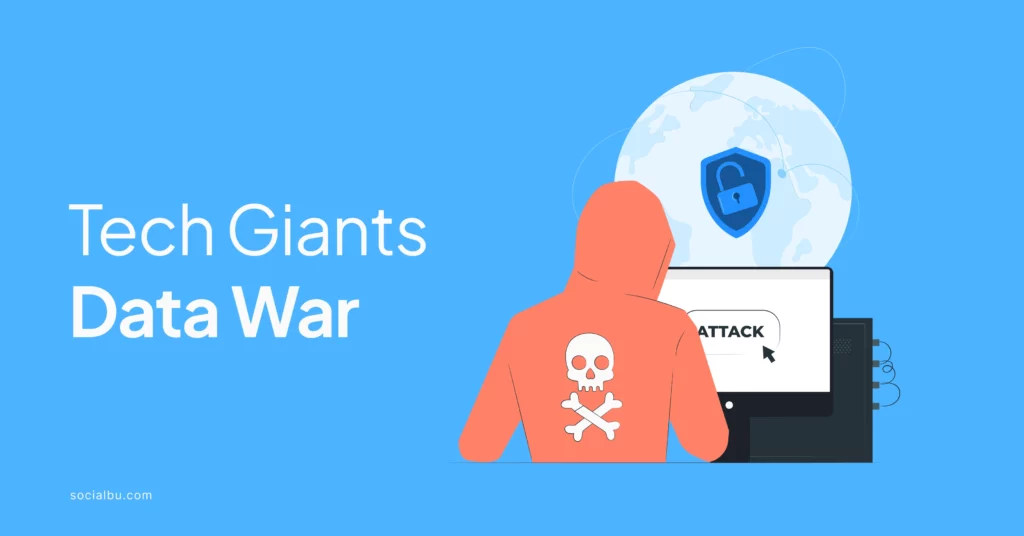Some people call data the new oil in the modern digital world, and the tech giants are the big players. These sharks have the biggest appetite for your data, and they know how to get it.
The world’s biggest companies, like Google, Meta(Facebook), Apple, and Amazon, capture so much user data that they have built empires – and most of the time, we don’t even know they’re doing it.
Below, we’ll discuss how these tech giants have the biggest appetite for your information.

Google has an unquenchable hunger for your data. Statistics show they handle over 2.5 exabytes of data daily. That’s over 2,500,000,000 gigabytes. The total amount of data they have stored is, unsurprisingly, unknown.
Every time you type into a search engine box, watch a YouTube video or search Google Maps, all this reveals more about who you are. Nobody wants that much information about themselves online.
You can remove your personal information from Google, but you must understand how Google collects your data continuously. Google uses the information to target ads at you specifically or in aggregate, improve its service content, and build detailed user profiles.
This company can collect vast amounts of personal data from many sources, including Gmail accounts, Google Drive, Android systems, and more, meaning they probably know almost everything about your online life.
Meta (Facebook)
Meta, formerly Facebook, generates 4 petabytes of data daily—a million gigabytes. With over 2 billion users globally, Meta is a hungry monster regarding user data collection.
Personal details about yourself and connections between friends are just pieces of information Meta uses to build detailed profiles for advertising, helping advertisers target you accurately.
Meta also collects information from Instagram and WhatsApp (both owned by Meta) using its advertising software worldwide. The accurate figure for how much data Facebook stores will be is far more than 4 petabytes.
Meta’s data policies are also some of the most questionable. The most notable case was the Cambridge Analytica scandal, in which millions of profiles were mined without their owners’ consent and used for political ends. This incident led to a massive public uproar and regulatory action.
The Federal Trade Commission (FTC) fined Meta $5 billion and required it to tighten its privacy standards.
Apple
Apple is renowned for placing more importance on data privacy than other companies in the industry, which they claim collect less information than they do.
The exact figures for how much data Apple collects aren’t online, but we can imagine it’s tons, with over 1.46 billion active iPhone users worldwide. That’s only the iPhone—you’ve got iPads, Macs, AirPods, etc.
Apple uses this information to enhance user experiences and provide better customer service. For example, it collects data about device usage, which helps it provide recommendations on the best performance-enhancing features users can use.
Amazon
Amazon is not just a marketplace. It’s a data warehouse. Amazon collects 1 petabyte of data daily. Whenever you browse, search, or buy something on Amazon, the company knows what you like because of every purchase, click on, remove from your cart, etc.
Amazon collects as much data as possible to customize your shopping experience or suggest products you may want. That’s why you’ll always have regular shopping suggestions based on what you’ve been looking at.
Alexa also collects voice data, making its data collection capabilities even more comprehensive. This information improves voice recognition and makes responses more accurate.
Your data is always available. These companies invest millions in big data analysis, using your data as the foundation. Will this help you better control your online footprint?
Conclusion
As the digital world continues to expand, so does the appetite of tech giants for our personal data. Understanding the stakes in this “Data Wars” is crucial for every internet user.
By being aware of the potential risks and taking steps to protect your privacy, you can regain control of your digital footprint.







